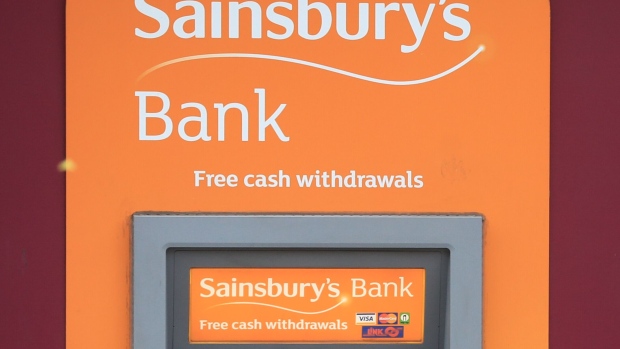Jun 20, 2024
NatWest Agrees to Acquire Sainsbury’s Retail Banking Offerings
, Bloomberg News

(Bloomberg) -- J Sainsbury Plc agreed to offload its banking business to NatWest Group Plc, the latest sign that the world’s biggest grocers have failed to break the stranglehold that traditional lenders have on financial services.
Britain’s second-largest grocer spent months trying to dispose of the division and ultimately agreed to pay NatWest £125 million ($159 million) to take the portfolio of unsecured personal loans, credit cards balances and deposits off its hands.
“This is a good outcome for Sainsbury’s to dispose of its bank, after a long sale period where it struggled to find a buyer,” William Woods, an analyst at Bernstein, said in a note to clients.
For years, retail giants have sought to offer financial services to their customers. In most cases, the hope was to use products like credit cards or bank accounts to entice consumers to spend more with their main grocery businesses.
But more recently retailers including Walmart Inc. and Tesco Plc have retrenched from offering those services as they sought to boost profitability and faced various challenges, including the logistics of offering highly regulated products and the difficulty of competing with more established rivals.
In the UK, politicians and regulators alike have sought for years to loosen the grip that large lenders have on the retail banking market. The country was among the first to embrace open banking technology, which was meant to induce more competition for lenders by making it easier for consumers to switch providers.
Even with that effort, big banks Barclays and Lloyds Banking Group Plc have been among the largest beneficiaries of people switching accounts.
The Sainsbury’s deal comes just months after it announced plans to cut £1 billion of costs and buy back shares as part of an updated strategy that promises to sharpen the supermarket chain’s focus on its core business. Sainsbury’s said it will dedicate more store space to selling food, rather than clothing or general merchandise, so that customers access the fullest possible range of groceries.
To that end, the grocer began planning a “phased withdrawal” from the banking division in January.
The London-based supermarket chain last year agreed to sell its £500 million mortgage portfolio to Co-Operative Bank. The grocer’s latest deal comes after Barclays Plc agreed in February to acquire much of rival Tesco’s banking business for about £600 million.
In the US, Walmart recently announced it was cutting ties with Capital One Financial Corp., ending a five-year-old agreement where the banking giant was the exclusive issuer of its credit cards. The two had publicly clashed over customer service in the months leading up to the partnership ending.
NatWest Deal
The Sainsbury’s deal will give NatWest a greater foothold in consumer finance and includes £2.5 billion of unsecured personal loans and credit cards balances, along with £2.6 billion of deposits.
The transaction is expected to close during the first half of 2025 and is subject to regulatory approvals. Argos Financial Services is excluded from the deal and so are Sainsbury’s Bank’s commission income business, including insurance, ATMs and travel money.
“NatWest is under-weight from a market share perspective in unsecured personal lending and credit cards, with this having been previously identified by management as an area for growth,” Gary Greenwood, an analyst at Shore Capital, said in a note to clients. “As such, the transaction fits with the group’s strategic objectives.”
--With assistance from Deirdre Hipwell.
©2024 Bloomberg L.P.






